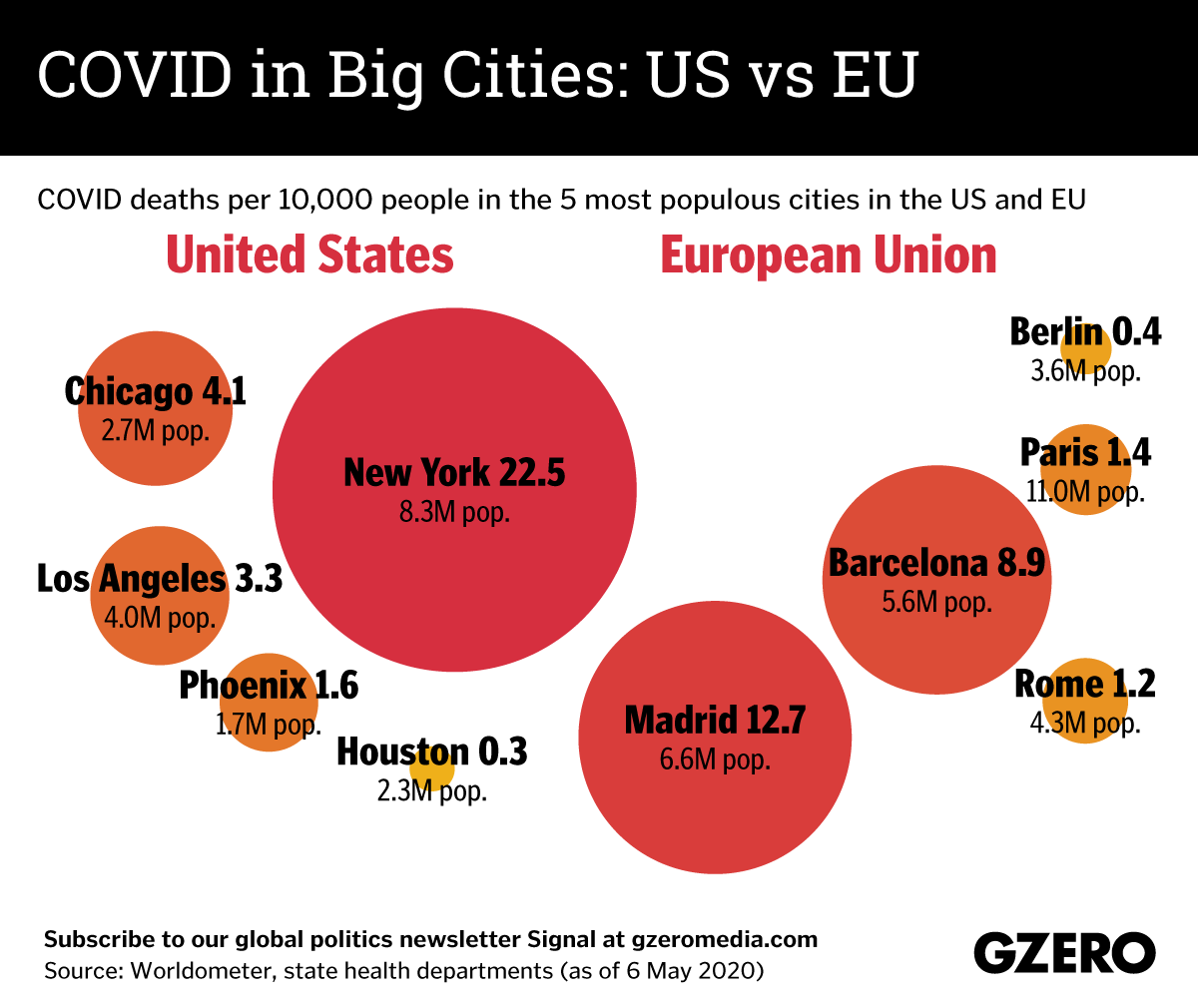May 07, 2020
Much has been made of the fact that the United States now leads the world in the number of coronavirus cases and deaths – and by a big margin. But comparisons between the US and other hard-hit countries like Italy or Spain are dubious because America is one of the most populous countries in the world. Contrasting the outbreak in the United States with the EU as a whole – which has a comparable combined population size – is therefore a more useful way to understand the scope of the virus and how containment efforts are playing out in comparable contexts. But because the pandemic is most severe in urban areas, we've taken a closer look at how COVID-19 death rates compare between the five most populous cities in the EU and those in the US.
More For You
Prime Minister Narendra Modi, with President of the European Council António Luís Santos da Costa, and President of the European Commission Ursula von der Leyen, at Hyderabad House, in New Delhi, India, on Jan. 27, 2026.
DPR PMO/ANI Photo
On Tuesday, the world’s largest single market and the world’s most populous country cinched a deal that will slash or reduce tariffs on the vast majority of the products they trade.
Most Popular
Sponsored posts
Five forces that shaped 2025
What's Good Wednesdays
What’s Good Wednesdays™, January 28, 2026
Mexican President Claudia Sheinbaum Pardo stands alongside Canadian Prime Minister Mark Carney and US President Donald Trump during the 2026 World Cup draw at the John F. Kennedy Center for the Performing Arts in Washington, D.C., on December 5, 2025.
Deccio Serrano/NurPhoto
Canadian Prime Minister Mark Carney has repeatedly tussled with US President Donald Trump, whereas Mexican President Claudia Sheinbaum has tried to placate him. The discrepancy raises questions about the best way to approach the US leader.
Fighters of the Qassam Brigades, the armed wing of the Palestinian Islamist Hamas movement, attend a rally marking the 35th anniversary of the group's foundation in Gaza City on December 14, 2022.
Photo by Majdi Fathi/NurPhoto
10,000: The number of Hamas officers that the militant group reportedly wants to incorporate into the US-backed Palestinian administration for Gaza, in the form of a police force.
Walmart is investing $350 billion in US manufacturing. Over two-thirds of the products Walmart buys are made, grown, or assembled in America, like healthy dried fruit from The Ugly Co. The sustainable fruit is sourced directly from fourth-generation farmers in Farmersville, California, and delivered to your neighborhood Walmart shelves. Discover how Walmart's investment is supporting communities and fueling jobs across the nation.
© 2025 GZERO Media. All Rights Reserved | A Eurasia Group media company.
